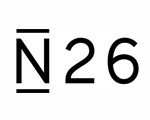Between income tax and social security charges, some Belgians 'contribute' up to 65 per cent of their gross pay each month to the government and the top income tax rate in Belgium is a whopping 50 per cent. The tax year in Belgium is the same as the calendar year – 1st January to 31st December).
As in many other countries, employees' income tax (often referred to as salary tax) is deducted at source by their employers, i.e. on a ‘pay as you earn’ (PAYE) basis. If you have various sources of income, it's prudent to employ an accountant or professional tax adviser to complete your tax returns and ensure that you’re properly assessed, as the tax system in Belgium is complicated. The information below applies only to personal income tax and not to companies and was current in mid-2006.
Many books are published in the local languages designed to help you understand and save taxes, and income tax guides are published each year as special editions of many of the consumer and financial magazines and journals. Many income tax guides now come with software to help you complete your tax forms and calculate your tax liability. The Ministry of Finance also publishes extensive information on income taxes on its website, often in English as well as the local languages. Since a few years now tax filing can also be done online .
All Belgian employers (which includes the Belgian offices of all foreign based employers) must withhold salary taxes according to the personal situation and tax status of the employee. In most cases, the taxes withheld will cover the income taxes due on your salary. You must however in any case file a tax return. You may have investment income, are expecting a refund, wish to claim any tax allowances, or are liable for municipal or community taxes. All those elements will have to be included in your tax return. Self-employed individuals must make quarterly pre-payments of estimated income tax based on the amount of tax paid the previous year; there are stiff penalties for failing to make these prepayments as well as a surcharge for 'late' payment.
This article is an extract from Living and Working in Holland, Belgium & Luxembourg from Survival Books.




